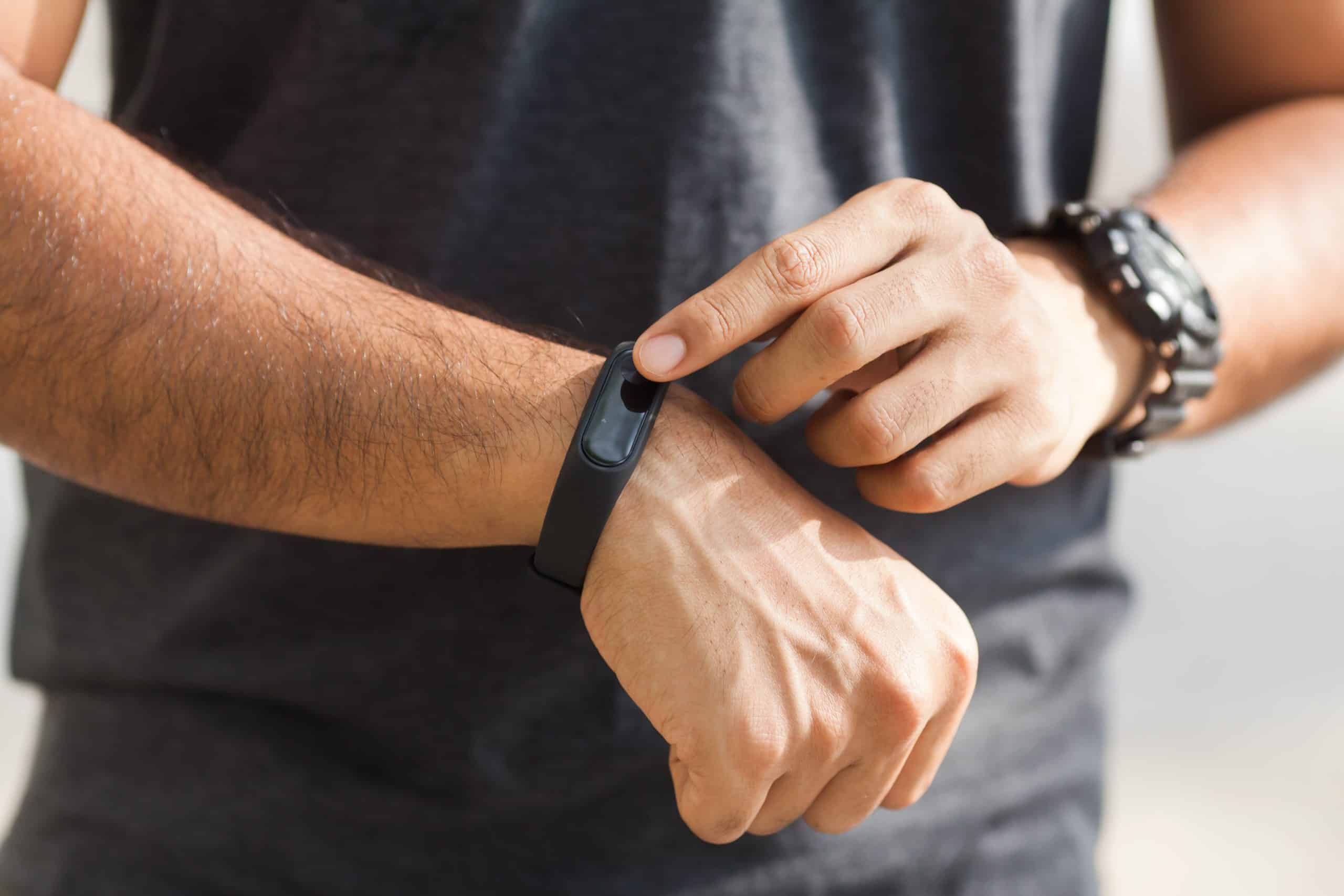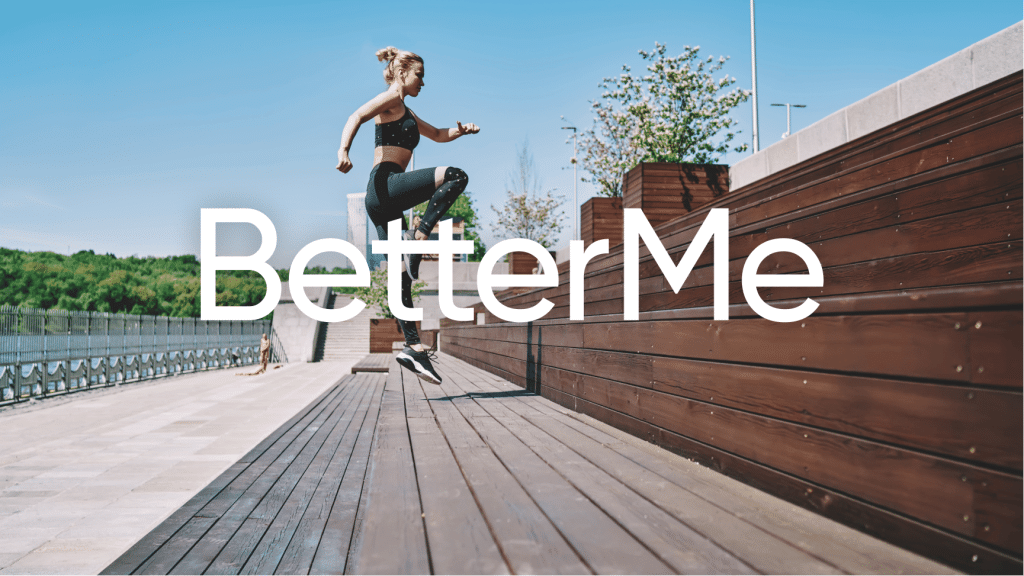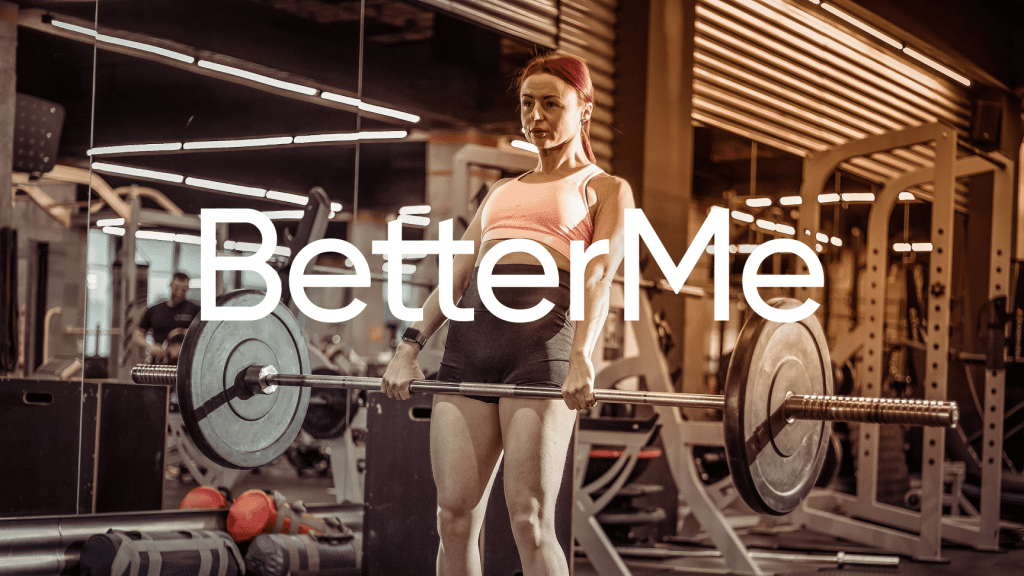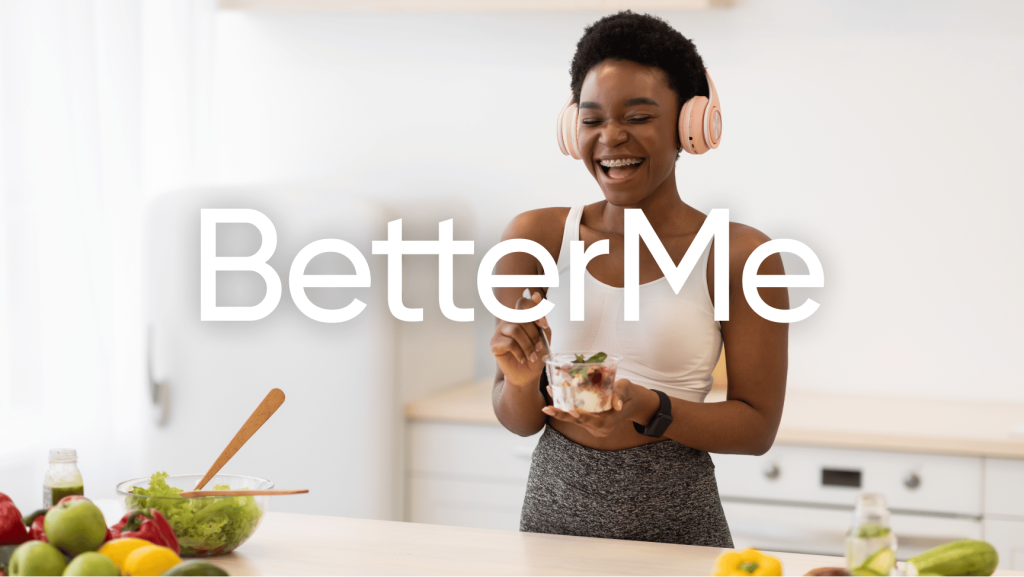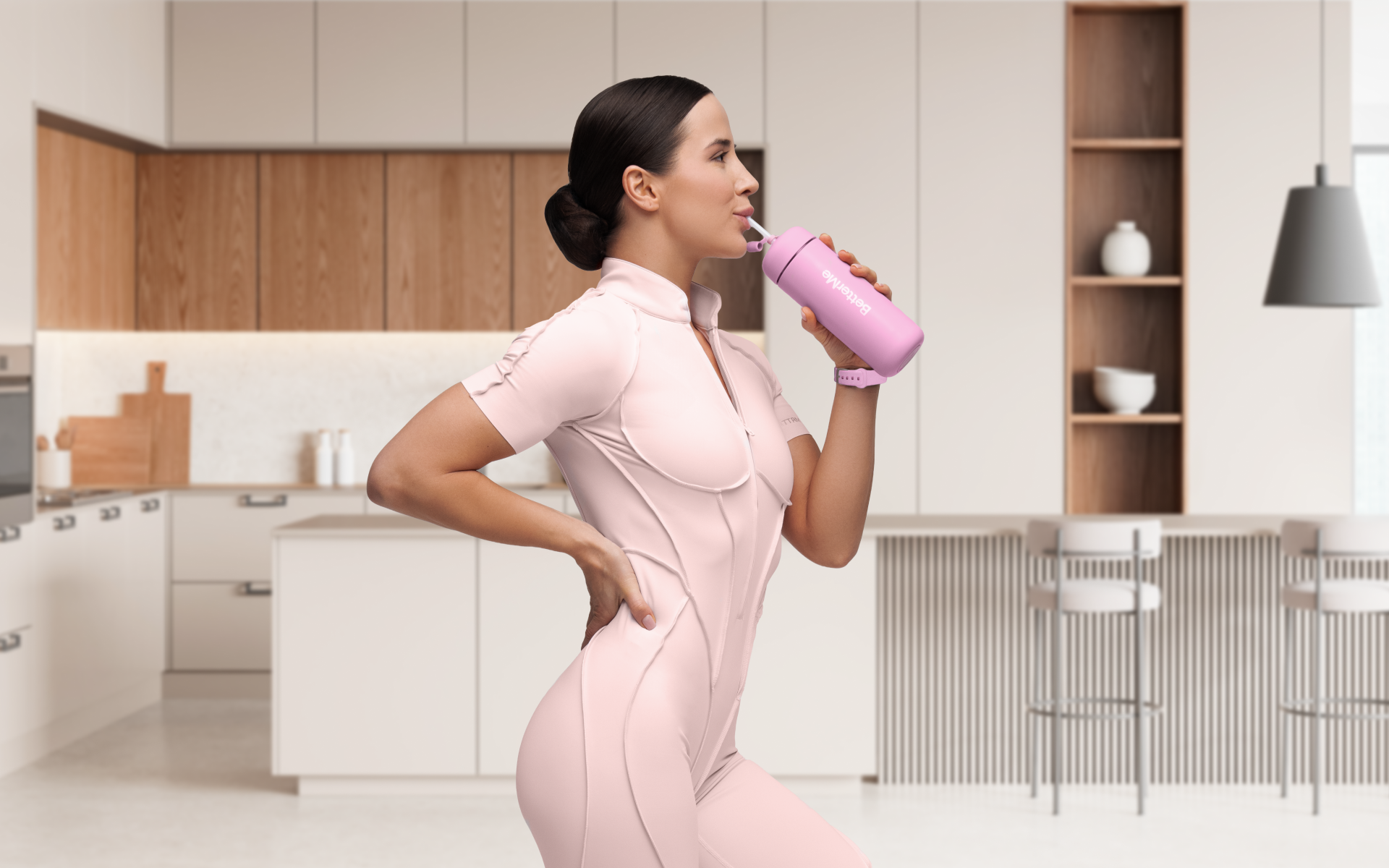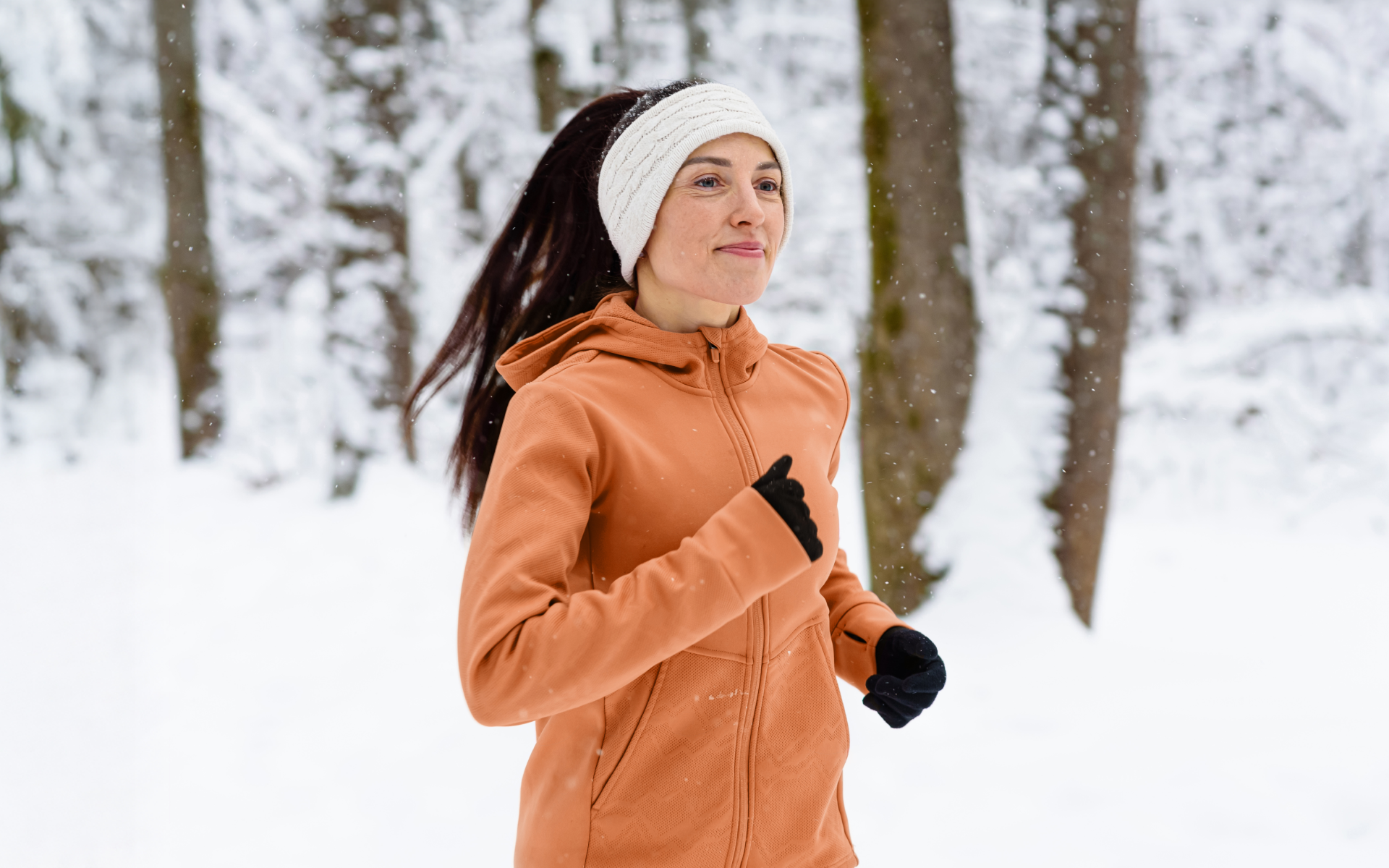As you get further in your fitness journey, one thing becomes apparent—there’s a never-ending array of gadgets and gear designed to help you stay on track. While some are a bit more flashy than others, one accessory stands out—the sports band. On the surface, this humble tech accessory may not seem all that impressive. Isn’t it just like a watch? Not exactly. Sports bands come with many more features, and all these benefits can help you reach your fitness goals faster. Not sure if you want to invest in a top-of-the-line sports band?
Get your personalized
meal plan!
Here are seven impressive benefits of owning one (along with our recommendation on the best sports band on the market):
1. Sneak In More Activity
Showing up for work, child rearing, and social commitments is a bit of a balancing act for most of us. When we can only make it to the gym every other day, we worry about not being able to meet our fitness goals.
Not knowing that there are many ways to sneak in more activity into our day-to-day life. Walking to and from your fave co-worker’s office, taking the stairs instead of the elevator and going for a 10-minute walk on your lunch break are all great ways to add more exercise into your day.
But you won’t know how much of a difference these small changes can make unless you have a reliable way of tracking them. That’s where your sports band comes in—it gives you an instant picture of how active you are. Every single day.
In-built activity trackers serve multiple beneficial purposes for the sedentary and the exercise enthusiast alike. For one, it helps you stay on top of your effort, but it also gives you an overall picture of how active or inactive you are.
What you do with these numbers makes all the difference. With a few minor tweaks to your daily routine, you can easily reach your fitness goals in no time.
Read More: How To Choose The Right Sports Bra: 7 Tips From Women’s Fitness Experts
2. Stay On Track With Your X-Steps-A-Day Goal
The 10,000 steps a day goal gained popularity from a product called the pedometer designed by Japanese company Yamax (4). The Japanese term “manpo-kei” literally translates to “10,000 steps meter”, so the general assumption is that if you’re able to clock 10,000 steps a day, then you are exercising enough. But what most people don’t know is that it’s actually a very arbitrary number. Depending on your age, gender, body type, and overall fitness level, you should aim for a higher or lower number of steps each day.
That’s where your sports band comes in. It helps you stay on top of your daily goal, no matter what it is. Not only will it tell you how many steps you’ve taken, but also how far you’ve gone and other important metrics like calories burned. It’s a great tool to get a more accurate picture of your overall activity level.
3. Determine Your Resting Heart Rate
In the context of other markers such as blood pressure and cholesterol levels, your resting heart rate is an important barometer of your overall health.
According to Harvard Health, a faster heart rate may be a sign of an underlying condition, and a slower one can mean better fitness which can protect you from heart disease and stroke. The ideal resting heart rate is between 60 and 100 beats per minute (5).
Not familiar with what your resting heart rate is? This term refers to the number of times your heart beats in a minute when you’re relaxed and at rest. An easy way to measure this vital sign is to take your pulse for a full minute.
But if you don’t want to take the time to do that, then look no further than your sports band. The built-in heart rate monitor can track your resting heart rate with one quick tap. By regularly testing this important statistic, you can get a better picture of your overall health.
4. Determine How Hard You’re Exercising
How hard your exercising matters, and not just because it determines how sweaty you get. There are four intensity levels for any kind of workout and knowing which one you’re in can help you optimize your performance. The first, warm-up and cool down, are the lightest intensities.
The second level is known as “aerobic exercise” which is slightly more intense and is usually done for 30 minutes or more. The third level is the “anaerobic exercise” zone which typically involves short bursts of higher-intensity activity and the fourth level is called “maximal exercise” which involves all-out sprints.
Increasing the intensity of your workouts can help you reach your goals faster. You’ll burn more calories, improve your cardiovascular endurance, improve your overall fitness level, and even build more lean muscle (2). But without the proper tracking tools, it can be hard to gauge how hard you’re actually exercising.
That’s where your fitness band comes into play. The device will track the intensity of your workouts by measuring your heart rate and activity levels. That way, you can make sure that you’re always pushing yourself to the max without over-exerting yourself.
By using the data that your sports band provides, you can make sure that you’re getting the most out of your workouts and reaching your fitness goals.
BetterMe app will provide you with a host of fat-frying fitness routines that’ll scare the extra pounds away and turn your body into a masterpiece! Get your life moving in the right direction with BetterMe!
5. Find Out Why You’re Waking Up Tired
Struggling to fall and stay asleep? Waking up so groggy that all you can do is reach for the coffee? If this sounds familiar, then it might be time to take a closer look at your sleep habits. Poor quality of sleep can have serious negative long-term effects, including memory loss, mood problems, and weight gain.
The sleep tracking features of your sports band can help you identify patterns and pinpoint underlying issues that are preventing you from getting a good night’s sleep. That’s especially because most bands track phases of sleep, including light and deep sleep.
By measuring these phases, you can get an accurate picture of your overall restfulness. If you find out that you’re not getting enough deep sleep, for example, then you can start to investigate what lifestyle changes need to be made. That could mean changing your sleep schedule, adjusting your caffeine intake, or setting aside time to wind down before bed.
Exercise is associated with better sleep quality, so in this way the band can even help you plan and monitor your workouts in order to maximize the benefits they offer.
6. Drink More Water
Many people don’t drink enough water, because they don’t remember to. Or they don’t like the taste. But drinking enough water can have a profound effect on your overall health. Water hydrates your body, helps your brain function better, and can even reduce headaches (3).
More importantly, drinking enough water can help you lose weight. That’s because water helps you feel full and control your appetite.If you’re one of those people who struggles to remember to drink enough water, then your sports band can help.
By tracking your daily water intake you’ll be able to make sure you’re hitting your target amount each day. You can even set reminders to prompt yourself to drink more water or make a goal for how much you want to drink each day.
7. Make Healthier Food Choices
The food you eat can have a major influence on your overall health. Eating healthy, balanced meals that are rich in nutrients can help boost your energy levels and improve your mood. But it can be hard to make healthier food choices when you’re always on the go. You skip a meal, get hungry, and end up grabbing unhealthy snacks.
Your fitness band can help you make better food choices by tracking your daily calorie intake. This is especially true if your band comes with an accompanying app such as BetterMe’s coaching app. In the app you can set calorie goals for yourself and track how many calories you’re eating each day. You’ll also be able to read nutrition labels, get healthy recipes, and even access meal-planning guides. All of this information can help you make smarter food choices.
Read More: Ankle Mobility Exercises, Benefits, And FAQ: Improve Stability For Sports And Life
Which Is The Best Sports Band For You?
So there you have it—seven ways that a fitness band can help you reach your health and wellness goals. But with so many different options on the market, it can be hard to decide which one is best for you.
When choosing a fitness band, you should look for one that offers the features you need and fits your lifestyle. Make sure it’s comfortable to wear and has enough battery life for your needs. You should also make sure that it syncs with the devices you use, such as your phone or laptop.
Ultimately, you want something that suits your lifestyle and helps you reach your health goals. With the right fitness band, you’re sure to succeed!
The BetterMe Band is a great choice if you’re looking for a fitness band that can help you reach your goals. It has:
- Activity tracking – Track and monitor your daily activity levels, including steps, distance traveled, and calories burned.
- Sleep monitoring – Monitor your sleep patterns, including light and deep sleep, to get an accurate picture of your restfulness.
- Step and distance tracking – Track your steps and the distance you travel each day.
- Water resistance – For up to 30 minutes at a time in 1.5m of freshwater.
- Comfortable and adjustable strap – The lightweight, adjustable design makes it comfortable to wear all day.
- Up to 10 days of battery life – Charge your battery every 10 days or so to maximise performance.
In addition, the BetterMe Band also syncs with a range of devices, including iPhones, iPads, and Android phones. So you can stay connected and track your progress wherever you go.
Betterme will keep you laser-focused on your weight loss journey! Nutrient-packed meal plans, fat-blasting workouts, galvanizing challenges and much more. Try using the app and see for yourself!
The Bottom Line
With regular use and proper interpretation, a sports band can be a powerful tool to help you get and stay healthy. Whether you want to lose weight, gain muscle, improve your performance, or just feel better, this device can provide the data you need to make informed decisions about your health and fitness.
DISCLAIMER:
This article is intended for general informational purposes only and does not serve to address individual circumstances. It is not a substitute for professional advice or help and should not be relied on for making any kind of decision-making. Any action taken as a direct or indirect result of the information in this article is entirely at your own risk and is your sole responsibility.
BetterMe, its content staff, and its medical advisors accept no responsibility for inaccuracies, errors, misstatements, inconsistencies, or omissions and specifically disclaim any liability, loss or risk, personal, professional or otherwise, which may be incurred as a consequence, directly or indirectly, of the use and/or application of any content.
You should always seek the advice of your physician or other qualified health provider with any questions you may have regarding a medical condition or your specific situation. Never disregard professional medical advice or delay seeking it because of BetterMe content. If you suspect or think you may have a medical emergency, call your doctor.
SOURCES:
- Effects of 10,000 steps a day on physical and mental health in overweight participants in a community setting: a preliminary study (2016, nih.gov)
- High-intensity interval training for health benefits and care of cardiac diseases – The key to an efficient exercise protocol (2019, nih.gov)
- Water – a vital nutrient (2021, betterhealth.vic.gov.au)
- Where did 10,000 steps a day come from? (2019, news.medical.net)
- Your resting heart rate can reflect your current and future health (2021, harvard.edu)
